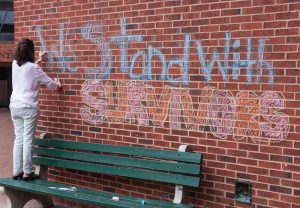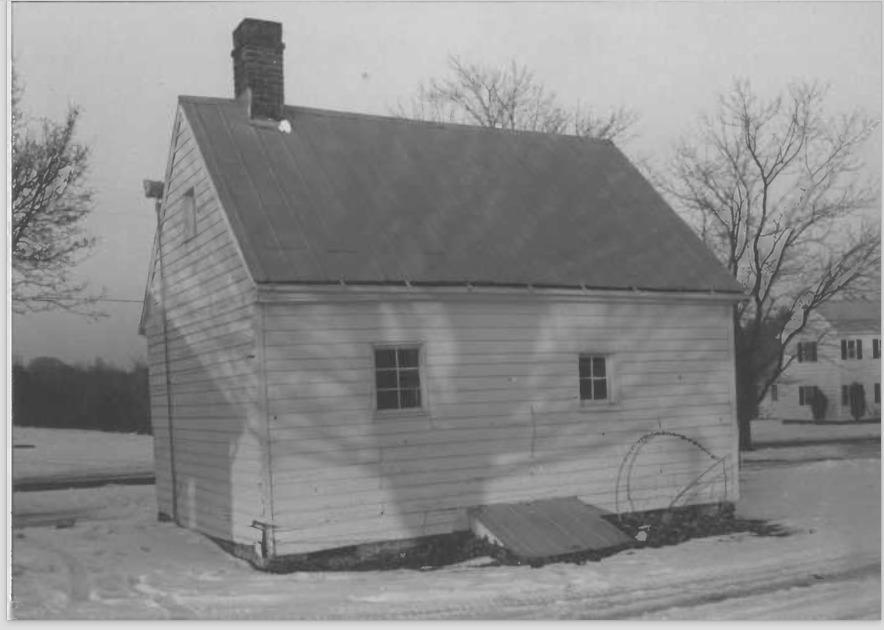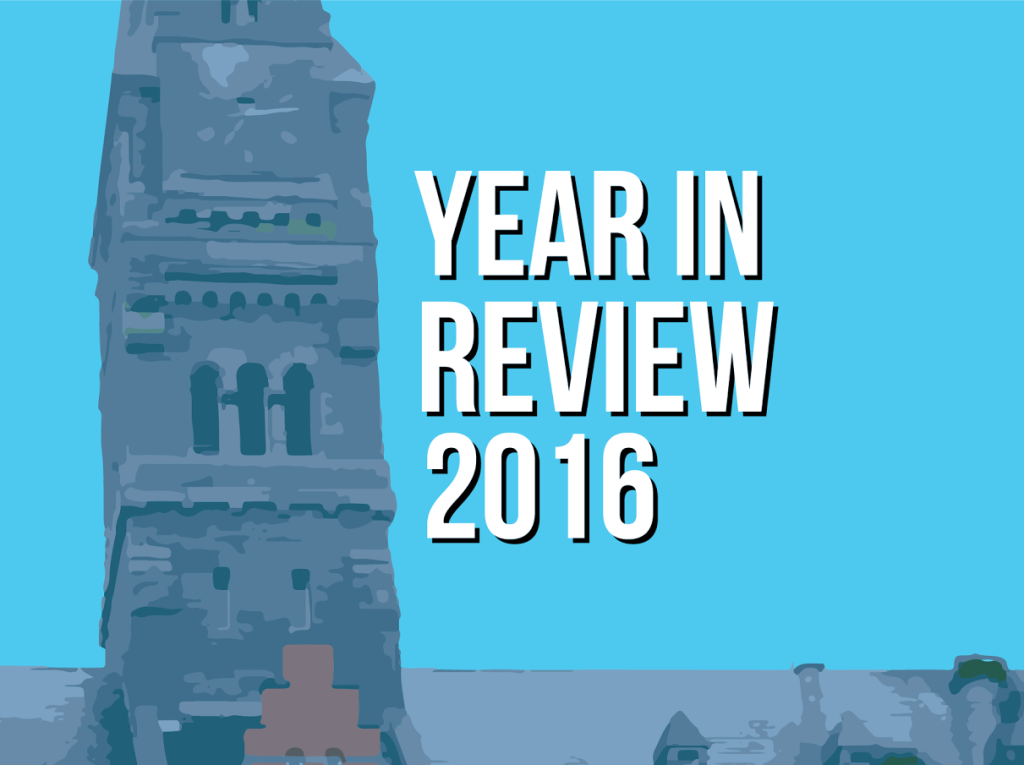
The opinion piece “I Stand With Willa,” co-authored by Zoe Dobkin (SFS ’16) and Willa Murphy, contributed to the movement demanding that the administration amend its response to sexual assault cases.
As the issue of sexual assault on college campuses rose to the forefront of the national consciousness, advocacy efforts for awareness and policy reform at Georgetown also gained traction over the past academic year. From the hiring of the university’s first full-time Title IX coordinator, to the dissemination of the Sexual Assault and Misconduct Survey, to the waiving of Counseling and Psychiatric Services fees for survivors, this year witnessed significant advancements in advocacy and policy.
In late July, the publication of two survivors’ accounts shed light on the administration’s mismanagement of sexual assault cases and the need for more survivor resources.
On July 21, Zoe Dobkin (SFS ’16) and Willa Murphy co-authored an opinion piece in The Hoya (“I Stand With Willa, I Stand With Survivors,” thehoya.com, July 21, 2015) recounting Murphy’s ordeal with the university following her rape. Murphy claimed the university provided insufficient support after she reported the rape, which resulted in academic struggles and her subsequent expulsion.
Murphy’s account marked the beginning of the “#IStandWithWilla” campaign, which ignited dialogue on sexual assault at Georgetown. The following day, the Georgetown University Student Association convened with student activists and requested to meet with administrators to address concerns regarding the university’s sexual assault policy.
One week later, Olivia Hinerfeld (SFS ’17) documented her own experiences as a survivor in a viewpoint (“A Shared Obligation,” thehoya.com, July 29, 2015), in which she encouraged students to work in tandem with the university to create a more survivor-centric campus.
In mid-September, following two months of negotiations between GUSA and the administration, a memorandum of understanding was reached. Both parties committed to sexual assault policy reform and expanded programs, including increasing promotional material for survivor resources, furthering bystander education, expediting the development of a campus climate survey and hiring of a full-time Title IX coordinator.
Subsequent months saw the implementation of these initiatives. In December, the university hired Samantha Berner as the university’s first full-time Title IX investigator. On the first day of the spring semester, the university announced the appointment of Laura Cutway as the first full-time Title IX coordinator, a role that oversees the university’s sexual misconduct policy.
“I’d love to … provide a framework and confidence in our system so that people know what they would be getting involved in if they were to report [sexual misconduct], that they feel comfortable and confident in the process,” Cutway said in an interview with The Hoya.
With Cutway’s appointment, the university also disseminated the first Sexual Assault and Misconduct Climate Survey to develop an understanding of the prevalence of and attitudes toward sexual misconduct on campus. Modeled after a template from the Association of American Universities, the survey initially saw underwhelming participation from both undergraduate and graduate students. The university extended the survey completion deadline by a week, which resulted in a final participation rate of 51 percent of the entire student population, surpassing the university’s target by 1 percent. The results from the survey are expected to be released to the community in May.
Meanwhile, other offices and departments also continued their efforts to promote awareness and improve responses to sexual assault cases. The Georgetown University Police Department conducted a 40-hour training program for its 14-person Sexual Assault Response Team over spring break to clarify procedures on responding to sexual assault reports.
In April, CAPS began offering free semester-long services for sexual assault survivors and accused perpetrators, the result of a joint effort with GUSA. Under the new policy, students will receive a semester’s worth of treatment regardless of when they begin.
Toward the end of the semester, the university also released a new GOCard design that includes the phone numbers of five campus resources — including GUPD, CAPS and the D.C. Rape Crisis Center — on the back. Freshmen and transfer students arriving in fall 2016 will receive the new GOCards, while current students are now able to trade in their existing GOCard for the new version.
Looking ahead, both students and administrators agree that while substantial efforts have been made to create more awareness and visible resources for survivors, there remains room for improvement.
“The events of the past few months have continuously proven to me that Georgetown is committed to answering that call,” Hinerfeld wrote in an email to The Hoya.
Hinerfeld, who currently serves as GUSA Deputy Chief of Staff, said she hopes to see further initiatives in the next academic year, including a bystander intervention program that builds on I Am Ready, a mandatory training on campus sexual assault during New Student Orientation.
“Of course, our work is never finished,” Hinerfeld wrote. “We need to ensure that we are being responsive to the specific needs of the Georgetown community. Before I graduate, I hope to see the implementation of a new bystander intervention education program for student leaders and the development of a platform for students to report sexual assault online.”
At the third annual Sexual Assault Open Forum on April 20, Health Education Services Clinician and Sexual Assault Specialist Jennifer Wiggins said she would like to see more diversity in the sexual assault education community at Georgetown, noting that only 15 of the 60 students currently involved with the Sexual Assault Peer Educators program identify as male, and few students of color are represented.
At the forum, Vice President for Student Affairs Todd Olson said he looks forward to continuing university-wide discussions on sexual assault policy initiatives.
“I’m still very restless and eager to hear what our working groups come up with. I think we need to be restless, while also acknowledging the fact that we’ve done a lot of great work,” Olson said.











